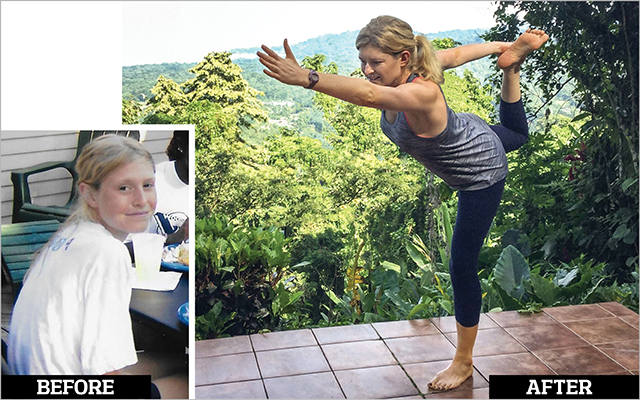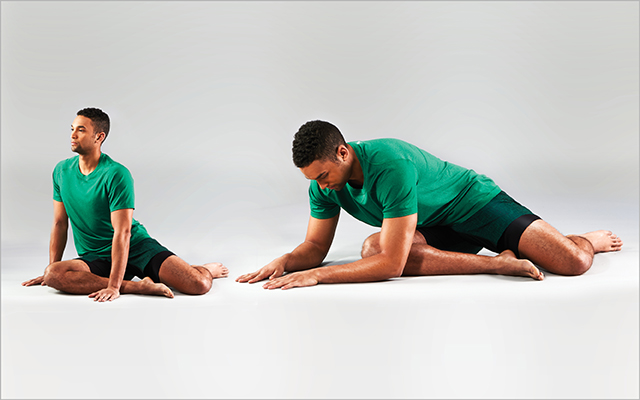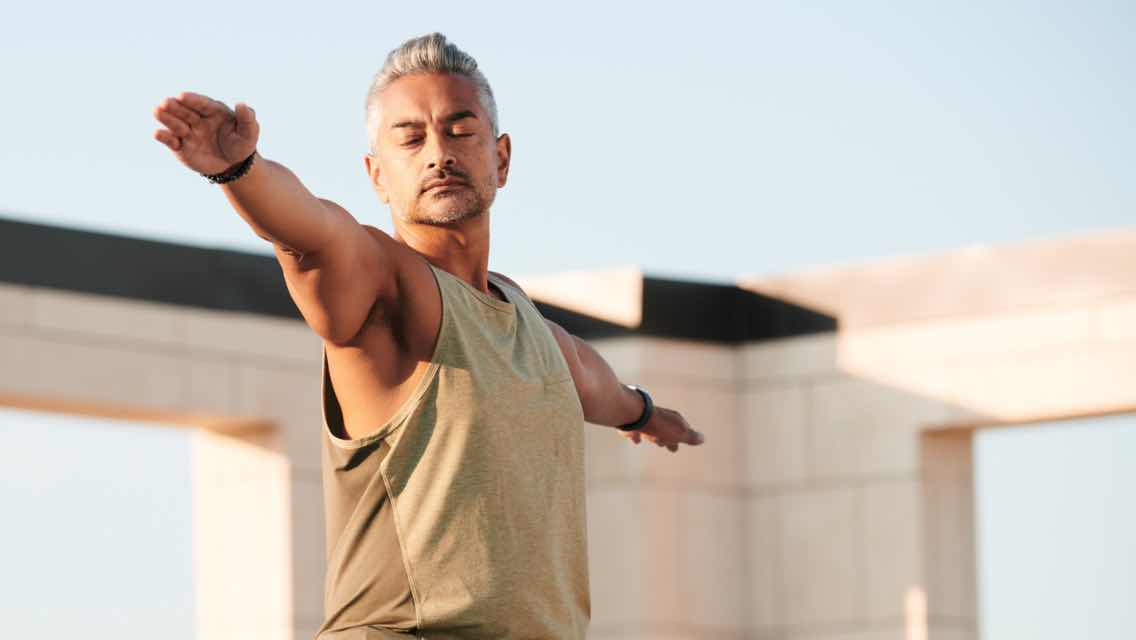I’ve spent most of my life at war with my body. For years, I thrived on being thin, and I managed my weight closely with extreme exercise and dietary restrictions. I had a distorted body image and no self-esteem.
I was just 11 years old when it all began. At the time, a lot of things in my life felt uncertain — my mother was recovering from some health issues and my father was considering moving our family to Cincinnati from our home in Fort Wayne, Ind., where I’d lived my whole life. Tracking my meals and workouts offered a sense of control that I felt I desperately needed.
I wore a belt to bed to keep my stomach flat, and I exercised at all hours — doing sit-ups in my bedroom and running on the treadmill at night while my family slept. I was adept at hiding my behavior, and, for a while, my parents thought the changes in my body were a natural part of preadolescence. But later that year, I became so malnourished that my hair began falling out. That’s when they took me to the doctor, who diagnosed me with anorexia nervosa.
Tough Transitions
I spent a few weeks receiving outpatient medical treatment so doctors could treat my malnutrition. Once I was released, my parents sought additional help. They arranged personal therapy sessions for me, and we went through family counseling together. My symptoms improved somewhat, and there were even times when I was able to maintain a healthier weight.
But those improvements were always short-lived. Once I put on some pounds, I would start to feel out of control, and my old habits would creep up again. My disordered behaviors grew especially intense during times of change, like when
I started high school or when I moved away from home to begin my freshman year at Purdue University.
At home, my parents helped me stay the course with my recovery, but college was a whole new ballgame. None of my new friends knew my history. I could make excuses for skipping meals, and no one would question it; they just thought I was naturally thin.
My diet was all low-calorie convenience foods, including diet frozen meals and fat-free snacks. I was hitting the treadmill at the gym to burn off what little I did eat — but since I was so malnourished, running hurt my joints. Ironically, I was studying to be a nurse — I wanted to help others take care of themselves, but I neglected my own health.
The first three years of my nursing program were rigorous, and the stress made me more obsessive. Because I worked out so much during the day, I’d have to stay up all night to study, and that lack of sleep distorted my thinking even further. Still, as much as I began to dread exercising, I felt like I couldn’t stop.
The Other Side of Unhealthy
The final year of my nursing program was less regimented than the first three, and I finally felt I could relax a bit. Like most of my friends, I had just turned 21 and wanted to spend my time the way a lot of 21-year-olds do. Before I knew it, I was out drinking three or four nights every week and making a lot of late-night, deep-fried decisions.
After years of obsessing over everything I ate, it felt good to give myself a break. But my behavior had swung too far in the opposite direction. Despite my healthier BMI, I felt bloated and self-conscious because my weight gain was all pizza and beer.
As the end of my senior year approached, I began to feel intensely anxious about the next phase of my life. I was so tired of living in extremes, and I was determined to make this transition a good one.
After graduation, I moved to Indianapolis to begin work as a registered nurse. Seeing patients every day, I became even more motivated to get healthy. I wanted to feel good about advising and helping others do the same.
My roommate and I joined the Life Time near our apartment shortly after we moved, and I was intrigued by the group fitness classes. In the past, I’d only exercised alone, but I felt open to trying something different. That’s how I ended up in my first yoga class.
I’d always eschewed yoga because it doesn’t burn a lot of calories. But the first time I stepped onto my mat, I felt a sense of calm unlike anything I’d ever felt before. For so long, I’d been feeling pressure — to look perfect, to get perfect grades, to keep everything perfectly under control. I’d never experienced a physical activity that wasn’t about pushing myself.
Yoga is so much about listening to yourself: You go into a posture and stop when your body tells you to stop. Ultimately, that’s how you make progress; yoga is about practice, not perfection. The breathing exercises helped me appreciate the powerful connection between mind and body. I learned that when I slowed my breath, I could steady my thoughts.
I was getting to know my inner self. I realized that I’d never really tried to honor my body’s wisdom. That’s when my practice began to improve my life off my mat.
A Fresh Start
I wanted to feel good during class, so I started eating more whole foods; I was craving veggies and fruits, and cutting out the processed junk. In the evening, I found myself enjoying hot tea instead of a glass of wine.
Every time I stepped onto my mat was a little different from the time before, which taught me to be more forgiving with myself. I had to accept that I couldn’t always get into every pose. That sense of patience has influenced other parts of my life: I’m a more empathetic listener, which makes me a better nurse — and a better friend and family member, too.
After practicing yoga for four years, I went to Costa Rica in the fall of 2016 to complete my yoga-teaching certification. It was a challenging and intense program, but it helped me discover more of my inner strength and gain a deeper respect for what my body can do.
The practice of yoga — like recovery, and like life — is far from perfect, and that’s OK. It’s a beautiful thing to stumble and fall, because then you have the chance to begin anew.
Success Summary
Meet: Christina Peters, 27, a registered nurse in Indianapolis.
Big Achievement: Learning patience and self-respect after years of disordered eating and exercising.
Big Inspiration: “Beginning my yoga practice sparked a sense of peace in me that I’d not experienced before,” Christina says. “I realized that I’m worth taking care of and that I deserve balance and love in my life.”
What Worked: Yoga gave Christina a regular and rejuvenating exercise routine, which inspired her to tune in to her body’s needs, eat more whole foods, and choose sleep when she needed it.
What Didn’t Work: Restricting calories and overexercising left her weak and depleted; overindulging in beer, pizza, and fried foods made her feel bloated and insecure.
Words of Wisdom: “As Teddy Roosevelt once said, ‘Comparison is the thief of joy.’ Everyone is different, but if you can find peace with where you are and learn to love yourself, you’re right where you’re supposed to be.”




This Post Has 0 Comments